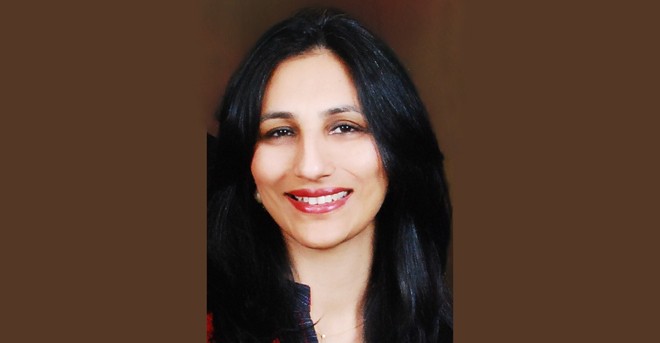

Let us get one thing clear, first. All women are working women. Some may work just within their homes and others outside as well, but they all work. It is common to hear housewives, when asked what they do, to euphemistically answer, ‘nothing’. Well, nothing could be further from the truth. Their job is, in fact, the hardest job there is. Twenty-four seven, year in year out, no benefits, no leave, no appreciation.
Consider the average married woman with a young family. Barring a few exceptions, she is, well, there is no other way to put it, superwoman, for she is teacher, cook, nurse, driver, detective, inspector, judge-jury-executioner, bad cop, good cop, magic fairy, tooth fairy, dishwasher, washing machine, smiling host, loving wife, secretly seething-overtly submissive daughter-in- law, local money lender and neighbourhood dispute resolver, all rolled into one.
Then she has to go to work.
If she has a menial or lower-grade job, her labour continues, because she is way down in the pecking order at the workplace. She is exploited, under-paid, and continuously accused of poor quality work blamed on her string of shallow excuses. "My child was unwell, we had guests, there was a public transport strike, my husband could not drop me, there is a wedding in the family, there was a death in the family, and, of course, the big one….I am expecting". ‘That is the reason women employees are so undependable, why they don’t deserve equal pay, why they can never rise to positions of higher responsibility’, we are told with a straight face.
You never find men making such excuses, come rain or shine, these wondrous warriors make their way to work and stay to do their duty. Anyone ever wonder how? It’s called the parallel-care economy. While Mr. Dependable dresses up and goes to work, someone has to take care of the sick child and the elderly mother, someone has to cook the food, iron the clothes, someone has to put in an appearance at family weddings and neighbourhood funerals; all this for free and, in some cases, at the considerable cost of cut wages.
In addition to being unpaid moreover, this work is largely invisible as well. In formal economies, only productive work, which provides hard cash, matters. Those with a triple burden of work; productive, reproductive and that related to family/community are labelled as doing ‘nothing’, even though they form the backbone of the economy through the support they provide and the social capital they produce.
But then praise be to God, there is the professional woman, the woman at the top of her game. Well, she’s the man, so to speak! The transformation is fantastic. The hassled, harassed housewife, steps into her high heels and lo and behold, another person emerges.
With a changed body language, she strides confidently into her office, doors are opened for her, she is greeted with ‘Salaam Ma’am’, she barks orders at the office staff while the peon rushes to bring her morning tea. She is very much the cool executive, though at the back of her mind she is still making mental adjustments. Is there really no one hanging on to her shirt, begging for milk, did she manage to get the greasy French toast smudge off her dupatta, did she remember to tell someone that there were no tomatoes in the fridge and that they were out of eggs?
Oh dear, what about the form that had to be signed for little one’s school trip and the physiotherapist’s visit that had to be sorted out for grandmother? Well, she’ll sneak in a few phone calls in-between meetings, she reassures herself.
Back in the executive chair, she leans back for a brief reprieve. This is a world where she is in control. She experiences what it feels like to have power. It is a heady feeling, because she is able to use her education, her talents, and her abilities in creative, exciting ways. A bit like Cinderella at the ball she lives out a fantasy where she is all she has the potential to be. She gets to make decisions and she acquires ‘agency’, the crucial ability for individuals to act independently and make free choices.
For the Pakistani professional woman though, this ‘agency’ is limited. Come home time, and the trappings of power, much like the gown and horse buggy of Cinderella, disappear and she is back in the real world, which by all standards is patriarchal and misogynistic. This is more than just a women’s issue. It is in fact a national conundrum.
Look at the results of all board examinations, the entrance tests into professional medical colleges and universities. Girls are consistently dominating the top positions and getting into colleges in ever higher numbers. But is this translating into gainful employment and empowerment? Apparently not.
According to a study by the Ministry of Labour and Manpower, women who are economically active in Pakistan have, in general, a much lower level of education than those who are unemployed, especially in urban areas. In urban areas, 20 per cent of women who are degree holders are employed, while 40 per cent of those with less than one year of education are employed. This means that we are unable to convert the advantage of higher education into employment and this has to do with working conditions, institutional and legal support, societal and cultural constraints, and entrenched mindsets. This is a national loss.
Women constitute roughly half the population of Pakistan. Their work, whether in the formal or informal economy, is essential for real growth and development and a happy, healthy, stable society. A lot needs to be done but for starters, this time on the International Women’s Day, let’s not pass resolutions, let’s not have seminars, let’s not make speeches. Let’s just honour the working mothers in our lives.
The writer holds a doctorate in Social Medicine and works as a Health, Gender and Development consultant. She is married with two children